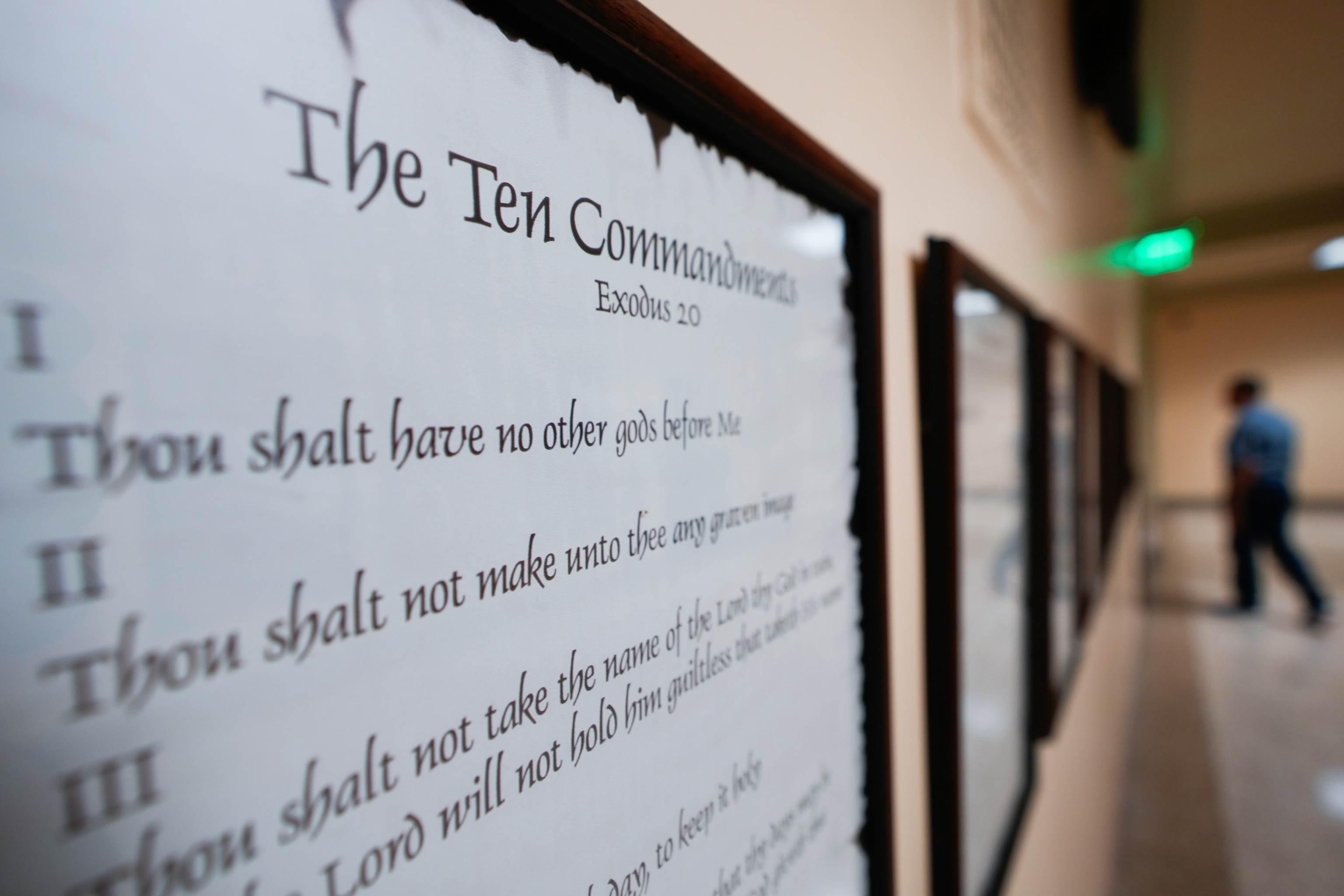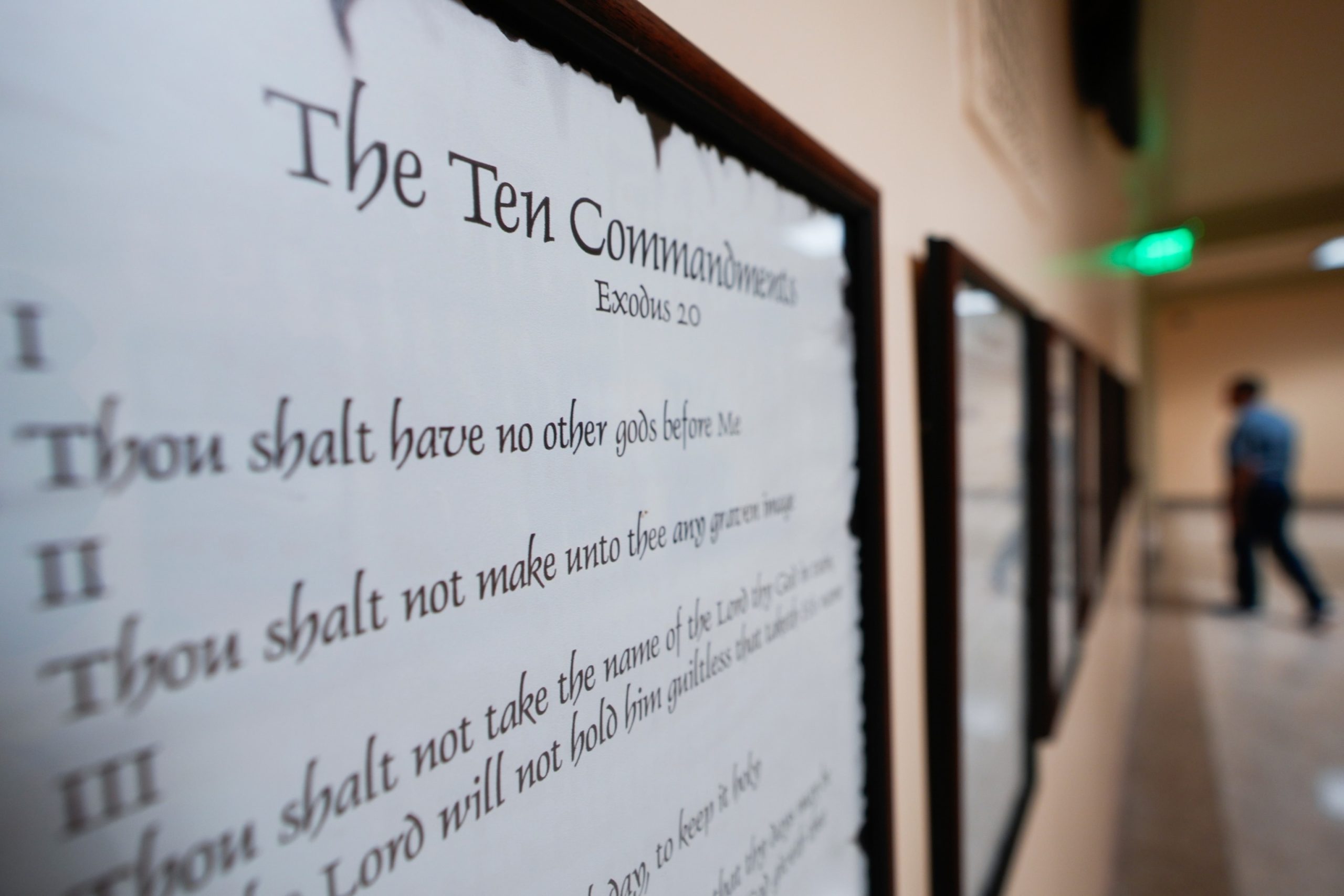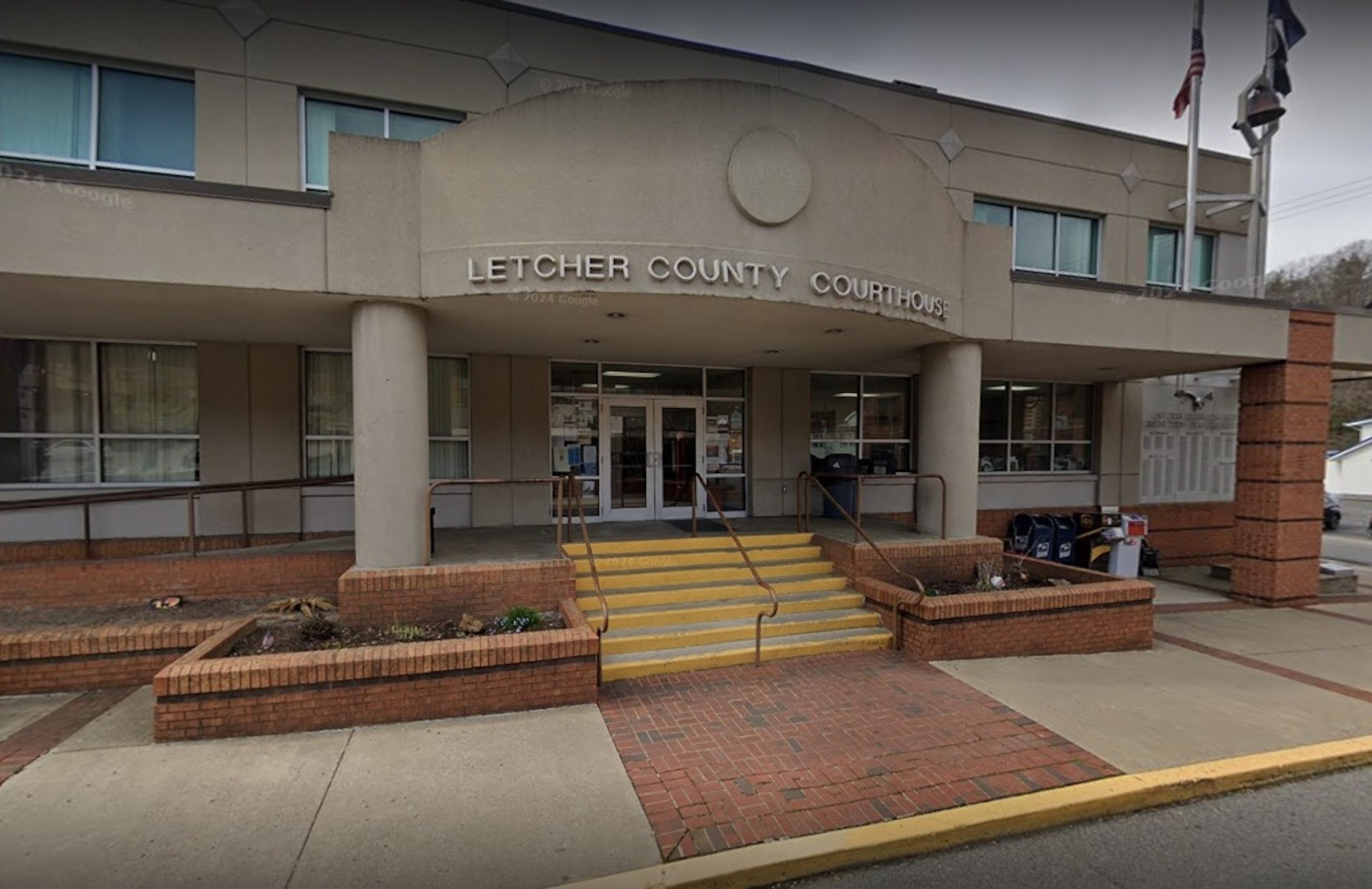Louisiana’s new law requiring all public school classrooms display the Ten Commandments will not be publicly enforced or endorsed in any way until November 15, 2024, according to a new court filing in the ongoing legal battle over the policy.
Both parties agreed that the Ten Commandments will not be posted in any public school classroom and defendants — including the state’s Louisiana State Board of Elementary and Secondary Education — and schools will not publicly move forward on the law’s implementation until November.
Lester Duhe, a spokesperson for the Louisiana Attorney General’s office, clarified that the defendants “agreed not to take public-facing compliance measures” until then because it will give time for “briefing, oral arguments and a decision” ahead of the January 2025 date in which schools have to have the Ten Commandments.
The January requirement still stands pending the outcome of the suit.
A multi-faith group of Louisiana families with children in public schools sued to challenge the law, HB 71, which mandates public schools — from kindergarten to the collegiate level — display the Ten Commandments, a religious set of rules from the Old Testament, in every classroom on “a poster or framed document that is at least 11 inches by 14 inches.”

A copy of the Ten Commandments is posted along with other historical documents in a hallway of the Georgia Capitol, June 20, 2024, in Atlanta.
John Bazemore/AP
The posters were expected to be paid for by private donations and not state dollars, according to the law, which does not disclose what would happen if a school does not comply with the order.
The suit argues that the law violates a U.S. Supreme Court precedent, pointing to the Stone v. Graham case in which the court overturned a similar state law, holding that the separation of church and state bars public schools from posting the Ten Commandments in classrooms.
The nine families — who are Jewish, Christian, Unitarian Universalist and nonreligious — also argue the law is religious coercion and violates their First Amendment rights: “Permanently posting the Ten Commandments in every Louisiana public school classroom – rendering them unavoidable – unconstitutionally pressures students into religious observance, veneration and adoption of the state’s favored religious scripture,” the complaint reads.

STOCK PHOTO/Getty Images
It continues, “It also sends the harmful and religiously divisive message that students who do not subscribe to the Ten Commandments — or, more precisely, to the specific version of the Ten Commandments that H.B. 71 requires schools to display — do not belong in their own school community and should refrain from expressing any faith practices or beliefs that are not aligned with the state’s religious preferences.”
Supporters of HB 71 argue that the law isn’t about religion: “This is not preaching a Christian religion. It’s not preaching any religion. It’s teaching a moral code,” the bill’s primary sponsor and Republican state Rep. Dodie Horton said during an April hearing, according to local news outlet WWL-TV.
The law argues that the Ten Commandments are also historically significant, reflecting “the understanding of the founders of our nation with respect to the necessity of civic morality to a functional self-government,” the text reads.
“If you want to respect the rule of law, you gotta start from the original lawgiver, which was Moses,” Louisiana Gov. Jeff Landry said during a press conference where he signed a package of education bills.
Louisiana’s controversial Ten Commandment classroom requirement has been temporarily halted, sparking a heated debate among educators, parents, and lawmakers. The requirement, which mandates that the Ten Commandments be displayed in every public school classroom in the state, was put on hold by a federal judge pending further legal proceedings.
The decision to halt the enforcement of the requirement comes after a lawsuit was filed by the American Civil Liberties Union (ACLU) on behalf of a group of parents and students who argued that the mandate violates the separation of church and state guaranteed by the First Amendment of the U.S. Constitution. The ACLU contended that the display of the Ten Commandments in public school classrooms promotes a specific religious belief and excludes those who do not adhere to that belief.
Supporters of the requirement argue that displaying the Ten Commandments in classrooms is a way to promote moral values and ethics among students. They believe that the commandments serve as a universal code of conduct that can benefit students regardless of their religious beliefs.
The debate over the Ten Commandment classroom requirement is not unique to Louisiana. Similar mandates have been proposed and challenged in other states, with courts often ruling in favor of the separation of church and state.
While the enforcement of the requirement has been temporarily halted, the legal battle is far from over. The case is expected to go to trial in the coming months, where both sides will present their arguments before a final decision is made.
In the meantime, educators and school administrators in Louisiana are left wondering how to proceed. Some have chosen to continue displaying the Ten Commandments in their classrooms, while others have opted to wait for further guidance from the courts.
Regardless of the outcome of this legal battle, one thing is clear: the debate over the role of religion in public schools is far from settled. As educators and lawmakers grapple with these complex issues, it is important to remember the importance of respecting diverse beliefs and upholding the principles of religious freedom guaranteed by the Constitution.



